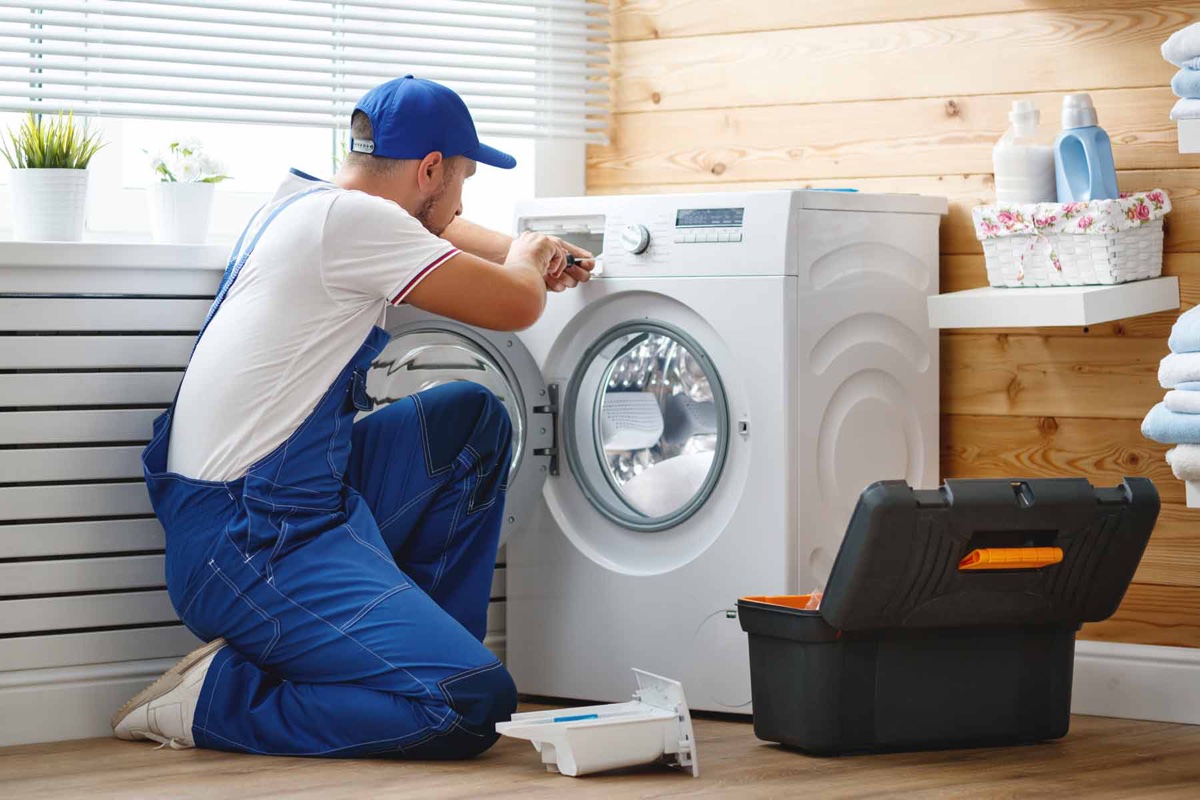

Articles
How Much Does It Cost To Fix A Washer
Modified: January 6, 2024
Find articles with information on how much it typically costs to fix a washer. Learn about common repair expenses and factors that can affect the final price.
(Many of the links in this article redirect to a specific reviewed product. Your purchase of these products through affiliate links helps to generate commission for Storables.com, at no extra cost. Learn more)
How Much Does It Cost To Fix A Washer
Washing machines play a crucial role in our everyday lives, making laundry chores much more convenient and efficient. However, like any other appliance, washers are not immune to malfunctions and breakdowns. When your washer stops working properly, you might find yourself wondering about the cost of fixing it. In this article, we will explore the factors that influence washer repair costs and provide you with some tips on how to reduce those expenses.
Key Takeaways:
- Understanding common washer issues and associated repair costs can help you make informed decisions when facing a malfunctioning washer, potentially saving you from unnecessary expenses and ensuring the longevity of your appliance.
- Implementing proactive measures such as regular maintenance, proper loading, and seeking multiple quotes for repairs can significantly reduce the need for costly washer repairs, providing you with a more reliable and cost-effective laundry solution.
Read more: How Much Does A Power Washer Cost
Common Washer Issues
Before discussing the cost of washer repair, it’s important to understand the common issues that can occur with washing machines. Some of the most common problems include:
- Water leakage
- Failure to start or turn on
- Unusual noises or vibrations
- Inability to drain or spin
- Poor cleaning performance
The type and severity of the problem will ultimately determine the cost of fixing your washer. Minor issues such as clogged filters or loose connections may only require a simple repair, while more complex problems like motor or drum malfunctions can be more expensive to fix.
Costs of Common Washer Repairs
The cost of repairing a washer can vary greatly depending on the specific problem and the brand of the appliance. On average, you can expect to pay between $100 and $500 for washer repairs. Here are some estimated costs for common washer repairs:
- Replacing a faulty water inlet valve: $150 – $200
- Repairing a malfunctioning motor: $200 – $400
- Fixing a leaking drain pump: $100 – $300
- Replacing a broken drum: $300 – $500
- Repairing electronic control board issues: $150 – $300
Keep in mind that these costs are just estimates, and the final price can vary depending on factors such as your location, the technician you hire, and the availability of replacement parts.
Introduction
Washing machines have become an essential appliance in most households, providing us with the convenience of clean clothes with just the touch of a button. However, like any other machine, washers are prone to wear and tear over time, leading to various problems that require repair. If you find yourself facing a malfunctioning washer, you may be wondering about the cost of fixing it.
In this article, we will delve into the factors that influence the cost of washer repair and share some valuable tips on how to reduce those expenses. By understanding the common issues and potential costs associated with fixing your washer, you will be better prepared to handle any breakdowns that may occur.
First and foremost, it’s important to be aware of the common issues that can plague washing machines. Leakage, failure to start, unusual noises, drainage problems, and poor cleaning performance are just a few of the problems that can arise. The severity of the issue and the type of repair required will directly impact the cost of fixing your washer.
When it comes to the cost of washer repairs, it is crucial to consider the specific problem and the brand of the appliance. On average, you can expect to pay anywhere from $100 to $500 for washer repairs, but keep in mind that these figures are rough estimates.
For instance, a faulty water inlet valve may cost you around $150 to $200 to replace. On the other hand, a malfunctioning motor could set you back anywhere between $200 and $400, depending on the brand and model of the washer. Repairing a leaking drain pump could cost you in the range of $100 to $300, while replacing a broken drum may require a budget of $300 to $500. Additionally, dealing with electronic control board issues might cost anywhere from $150 to $300.
However, it’s important to remember that these costs are approximate and can vary based on factors such as your geographical location, the technician you hire, and the availability of replacement parts. It’s always advisable to reach out to multiple repair service providers, compare quotes, and choose a reputable technician who offers quality service at a reasonable price.
With this comprehensive understanding of the factors that influence washer repair costs, you can now explore various avenues to reduce those expenses and make informed decisions when faced with a malfunctioning washer. Whether it’s considering DIY repairs or seeking professional help, we’ll provide you with valuable tips in the following sections to assist you in navigating the cost of fixing your washer.
Key Takeaways:
- Understanding common washer issues and associated repair costs can help you make informed decisions when facing a malfunctioning washer, potentially saving you from unnecessary expenses and ensuring the longevity of your appliance.
- Implementing proactive measures such as regular maintenance, proper loading, and seeking multiple quotes for repairs can significantly reduce the need for costly washer repairs, providing you with a more reliable and cost-effective laundry solution.
Read more: How Much Does A Power Washer Cost
Common Washer Issues
Washing machines are complex appliances with numerous components that can experience problems over time. Understanding common washer issues can help you identify the source of the problem and determine if professional repair is necessary. Here are some of the most common washer issues:
- Water Leakage: If you notice water puddles around your washer or a constant drip, it may indicate a problem with the water inlet valve, hoses, or the washer’s seal. Leaks can lead to water damage and should be addressed promptly.
- Failure to Start or Turn On: If your washer is unresponsive and fails to start or turn on, it could be due to issues with the power supply, control board, or door latch. Start by checking the power outlet and ensuring that the door is properly closed.
- Unusual Noises or Vibrations: Excessive noise, banging, or vibrations during the wash cycle can indicate problems with the drum bearings, motor, or suspension system. Unbalanced loads can also cause these issues.
- Inability to Drain or Spin: If your washer is not draining water or unable to spin, it could be due to a clogged drain pump or filter. Other potential causes include faulty drain hoses, motor issues, or problems with the lid switch.
- Poor Cleaning Performance: If your clothes are not getting cleaned properly or you notice residue left on them after a wash cycle, it may indicate a problem with the detergent dispenser, agitator, or water inlet valve. Hard water can also impact the cleanliness of your clothes.
While these are common washer issues, it’s important to remember that diagnosing and fixing them can vary depending on the specific make and model of your washer. In some cases, simple troubleshooting steps, such as cleaning the filter or adjusting the load, may resolve the problem. However, for more complex issues or if you are unsure about the cause of the problem, it is best to seek professional help.
Addressing washer issues promptly can help prevent further damage and extend the lifespan of your appliance. Regular maintenance, such as cleaning the washer drum, checking hoses for leaks, and inspecting the seals, can also help prevent potential problems. If you encounter any of these common washer issues, it’s recommended to consult a qualified technician who can assess the problem, provide an accurate diagnosis, and carry out any necessary repairs.
Costs of Common Washer Repairs
When it comes to repairing a washer, the cost can vary depending on the specific issue and the brand of the appliance. It’s essential to have an idea of the costs associated with common washer repairs to make informed decisions. Here are some estimated costs:
- Replacing a Faulty Water Inlet Valve: When the water inlet valve is malfunctioning, it can result in issues with water flow or leaks. Replacing the valve can cost you around $150 to $200, including labor and the cost of the part.
- Repairing a Malfunctioning Motor: The motor is a crucial component of the washer, and if it fails, the washer may not function at all. Repairing or replacing a faulty motor can range from $200 to $400, depending on the brand and model.
- Fixing a Leaking Drain Pump: Leaks from the drain pump can cause damage and affect the washer’s performance. The cost of repairing or replacing a leaking drain pump can range from $100 to $300, depending on the severity of the issue and the type of pump.
- Replacing a Broken Drum: A broken drum can result in loud noises, vibrations, or complete malfunction of the washer. Replacing the drum can be a more expensive repair, with costs ranging from $300 to $500, depending on the brand and model of the washer.
- Repairing Electronic Control Board Issues: The electronic control board is responsible for controlling various functions of the washer. Repairing electronic control board issues can cost between $150 and $300, depending on the complexity of the problem and the specific model.
It’s important to note that these costs are provided as estimates and can vary based on factors such as your location, the service provider you choose, and the availability of replacement parts. The cost of labor can also contribute to the overall repair expenses, with more experienced technicians charging higher rates.
Additionally, some repairs may require additional parts or components, which can further increase the cost. When consulting a repair technician, it’s advisable to ask for a detailed breakdown of the costs involved, including both labor and parts, to have a transparent view of the overall expenses.
It’s worth mentioning that in some cases, the cost of repairing an older washer may be significant, and it might be more cost-effective to consider replacing the appliance instead. The lifespan and overall condition of the washer should be taken into account when determining whether to repair or replace.
If you’re unsure about the cost of fixing your washer, it’s always recommended to seek multiple quotes from reputable repair service providers. This allows you to compare prices and services to make an informed decision that aligns with your budget and specific needs.
Factors Influencing Repair Costs
When it comes to repairing a washer, several factors can influence the overall cost of the service. Understanding these factors can help you better estimate the expenses involved and make informed decisions. Here are some key factors that can influence repair costs:
- Type and Severity of the Issue: The specific problem with your washer plays a significant role in determining the repair costs. Minor issues, such as a clogged filter or loose connection, may require simple repairs that are relatively inexpensive. However, more complex issues, such as motor or drum malfunctions, can increase repair costs due to the complexity of the repair process and the need for replacement parts.
- Brand and Model of the Washer: The brand and model of your washer can impact the cost of repairs. Some brands may have higher costs for replacement parts or require more specialized technicians, which can increase the overall expenses. Additionally, certain models may have unique components or features that require specialized repairs.
- Technician’s Experience and Expertise: The level of expertise and experience of the technician you hire can influence repair costs. Highly skilled and experienced technicians may charge higher rates for their services, as they bring advanced knowledge and expertise to diagnose and fix the issue effectively. While opting for a more experienced technician may come at a higher cost, it can often result in more efficient and long-lasting repairs.
- Geographical Location: The location of your residence can impact repair costs due to variations in labor rates and the availability of repair services. In areas with a higher cost of living, repair services may be more expensive compared to regions with a lower cost of living.
- Availability of Replacement Parts: The availability and cost of replacement parts for your specific washer model can also affect repair costs. If your washer requires uncommon or discontinued parts, it may be more challenging and expensive to source the necessary components.
Considering these factors, it’s important to consult with multiple repair service providers to compare quotes and evaluate the services offered. While it may be tempting to choose the cheapest option, it’s equally vital to consider the qualifications and reputation of the technician. Opting for a reputable technician who provides quality service and uses genuine replacement parts can save you from potential issues in the long run.
Furthermore, it’s worth noting that in some cases, the cost of repairing an older washer may outweigh the value of the appliance itself. If the repair costs are excessively high, it may be more cost-effective to consider replacing the washer instead. Assessing the overall condition, age, and lifespan of the washer can help in making this decision.
By taking these factors into account and being proactive in addressing washer issues, you can better manage and plan for the costs associated with repairs. Regular maintenance and timely repairs can help prolong the lifespan of your washer and minimize the likelihood of more costly repairs in the future.
DIY vs. Professional Repairs
When faced with a malfunctioning washer, one important consideration is whether to attempt DIY repairs or hire a professional. Both options have their advantages and drawbacks, and understanding them can help you make an informed decision. Here’s a breakdown of DIY repairs versus professional repairs:
DIY Repairs:
- Cost Savings: One of the main reasons people opt for DIY repairs is to save money. DIY repairs eliminate the need to pay for professional labor, potentially resulting in significant cost savings. You can find online tutorials, videos, and step-by-step guides to assist you with the repair process.
- Knowledge and Skills Development: Attempting a DIY repair allows you to learn more about the inner workings of your washer and develop new skills. It can be a rewarding experience, especially if you enjoy hands-on tasks and want to expand your knowledge in appliance repairs.
- Flexibility and Convenience: DIY repairs offer the flexibility to work on your washer at your own pace and schedule. It eliminates the need to wait for a technician’s availability and can be more convenient, especially if the issue is minor and does not require immediate attention.
While DIY repairs can be cost-effective and offer a learning experience, there are some considerations to keep in mind:
- Complexity of the Issue: It’s important to assess the complexity of the problem and your own technical skills before attempting a DIY repair. Certain issues, such as motor or control board malfunctions, may require specialized knowledge and tools that DIYers may not possess.
- Safety Concerns: Appliance repairs can involve electrical components and potentially hazardous situations. If you are not familiar with electrical safety or lack experience in handling appliances, it may be safer to leave the repairs to a professional to avoid accidents or further damage.
- Voiding Warranty: If your washer is still under warranty, attempting DIY repairs might void the warranty. Manufacturers often require professional repairs or may refuse warranty coverage if unauthorized repairs are performed.
Professional Repairs:
- Expertise and Experience: Professional technicians have the knowledge, training, and experience to accurately diagnose and fix washer issues. They have access to specialized tools and replacement parts, ensuring proper repairs and reducing the risk of further damage.
- Time-Saving: Hiring a professional can save you time and hassle. They will efficiently diagnose the problem and carry out the necessary repairs, which can be especially beneficial if you have a busy schedule or lack the confidence and skills to tackle the repair on your own.
- Guarantees and Warranties: Reputable repair service providers often offer guarantees and warranties on their workmanship and replacement parts. This provides assurance that if the problem persists or reoccurs, they will take responsibility and rectify the issue.
However, professional repairs also come with some considerations:
- Cost: Professional repairs involve labor costs, which can significantly impact the overall expenses. However, it’s important to weigh the cost against the quality of the repair and the peace of mind that comes with professional expertise.
- Availability and Timing: Depending on your location and the service provider’s schedule, securing a timely appointment for washer repair may not always be feasible. This can result in delays, especially if the issue requires immediate attention.
Ultimately, the decision between DIY and professional repairs depends on your comfort level, technical skills, the complexity of the issue, and your budget. If you are confident in your abilities and the problem is minor, DIY repairs can be a cost-effective solution. However, for complex issues or if safety and warranty concerns arise, it’s advisable to opt for professional repairs to ensure the proper functioning and longevity of your washer.
Tips for Reducing Washer Repair Costs
Dealing with washer repairs can be a daunting and costly experience. However, there are several tips you can follow to help reduce the overall expenses and minimize the need for frequent repairs. Here are some valuable tips for reducing washer repair costs:
- Regular Maintenance: Implement a regular maintenance routine for your washer to keep it in optimal condition. Clean or replace filters, check hoses for leaks, and ensure proper balance and alignment of the machine. Regular maintenance can help prevent minor issues from escalating into more expensive repairs.
- Proper Loading: Overloading the washer can strain the motor, drum, and other components, leading to premature wear and tear. Follow the manufacturer’s guidelines for load capacity to avoid unnecessary strain on the machine and minimize the risk of damage.
- Use Quality Detergents: Low-quality detergents can leave residue and cause buildup inside the washer, leading to clogs and poor performance. Invest in high-quality detergents that are suitable for your specific washer type to maintain optimal cleanliness and reduce the likelihood of repairs.
- Address Issues Promptly: When you notice any signs of a problem, such as unusual noises, leaks, or poor performance, tackle the issue promptly. Ignoring small problems can result in more significant issues and more expensive repairs down the line.
- DIY Troubleshooting: Before calling a professional, try troubleshooting basic problems yourself. Check the power supply, clean filters, and ensure proper connections. Many minor issues can be resolved through simple DIY solutions, saving you time and money.
- Seek Multiple Quotes: When you do need professional assistance, don’t hesitate to reach out to multiple repair service providers for quotes. Compare prices, services offered, and customer reviews to ensure you’re getting the best value for your money.
- Consider Extended Warranties: If you’re purchasing a new washer or already own one, consider investing in an extended warranty. Extended warranties can provide coverage for repairs beyond the manufacturer’s warranty period, potentially saving you from expensive out-of-pocket costs.
- Research and DIY Resources: Take advantage of online resources, tutorials, and forums that provide DIY repair tips specific to your washer model. Educating yourself about common issues and their solutions can empower you to handle minor repairs on your own, further reducing repair costs.
- Proper Installation: If you’re purchasing a new washer or moving to a new location, ensure proper installation by following the manufacturer’s guidelines or hiring a professional. Improper installation can lead to performance issues and may void the warranty, resulting in costly repairs.
- Consider Energy Efficiency: Opting for an energy-efficient washer can help reduce utility costs and potentially minimize the strain on the machine. Energy-efficient models often come with advanced features and improved durability, reducing the likelihood of repairs.
By implementing these tips and practicing preventive measures, you can significantly reduce the need for washer repairs and keep your appliance running smoothly. However, it’s important to assess the severity of the problem and seek professional help when necessary to avoid causing further damage or compromising your safety.
Remember, staying proactive and taking preventative measures not only helps reduce repair costs but also extends the lifespan of your washer, allowing you to enjoy cleaner clothes and a more reliable appliance for years to come.
Read more: How Much Does It Cost To Fix Gutters
Conclusion
Dealing with washer repairs can be stressful and costly, but with the right knowledge and proactive approach, you can navigate these challenges effectively. By understanding common washer issues and the associated costs, you are better equipped to make informed decisions when faced with a malfunctioning appliance.
We discussed the factors that influence repair costs, including the type and severity of the issue, the brand and model of the washer, the technician’s expertise, your geographical location, and the availability of replacement parts. These factors play a significant role in determining the overall expenses you may incur during the repair process.
We also explored the pros and cons of DIY repairs versus hiring a professional. DIY repairs can save you money and offer a learning experience, but they might not be suitable for complex issues or safety concerns. Going for professional repairs ensures expertise, time-saving, and guarantees, but it comes with a higher cost. It’s essential to consider your skills, the complexity of the problem, and your budget when deciding on the repair approach.
Furthermore, we provided valuable tips to reduce washer repair costs, such as regular maintenance, proper loading, using quality detergents, addressing issues promptly, and seeking multiple quotes. By following these tips, you can minimize the need for repairs and maintain the optimal performance of your washer.
In conclusion, when your washer malfunctions, it’s important to approach the situation with knowledge and proactive measures. Regular maintenance, prompt attention to issues, and considering a combination of DIY repairs and professional assistance can help you navigate washer repairs more effectively and minimize the associated costs.
Remember, a well-maintained washer not only saves you money but also enhances the longevity of the appliance, ensuring clean clothes and a hassle-free laundry experience for years to come.
Frequently Asked Questions about How Much Does It Cost To Fix A Washer
Was this page helpful?
At Storables.com, we guarantee accurate and reliable information. Our content, validated by Expert Board Contributors, is crafted following stringent Editorial Policies. We're committed to providing you with well-researched, expert-backed insights for all your informational needs.

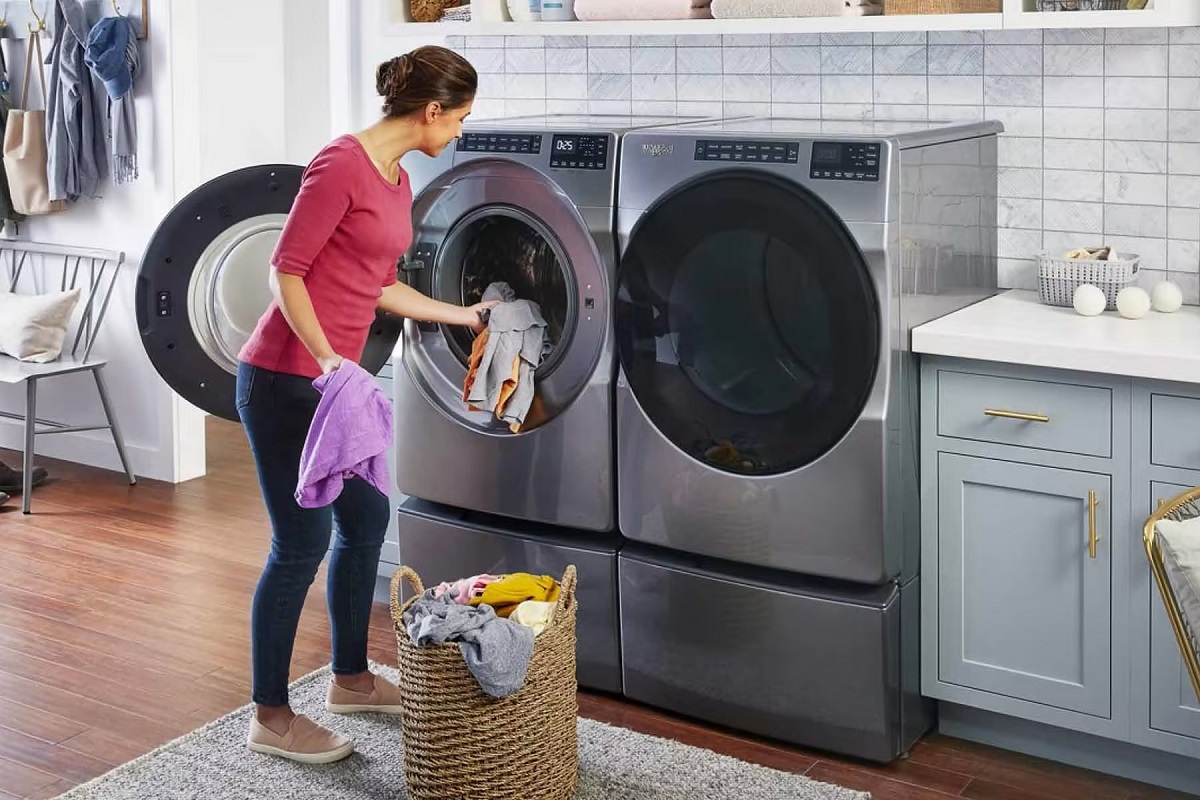
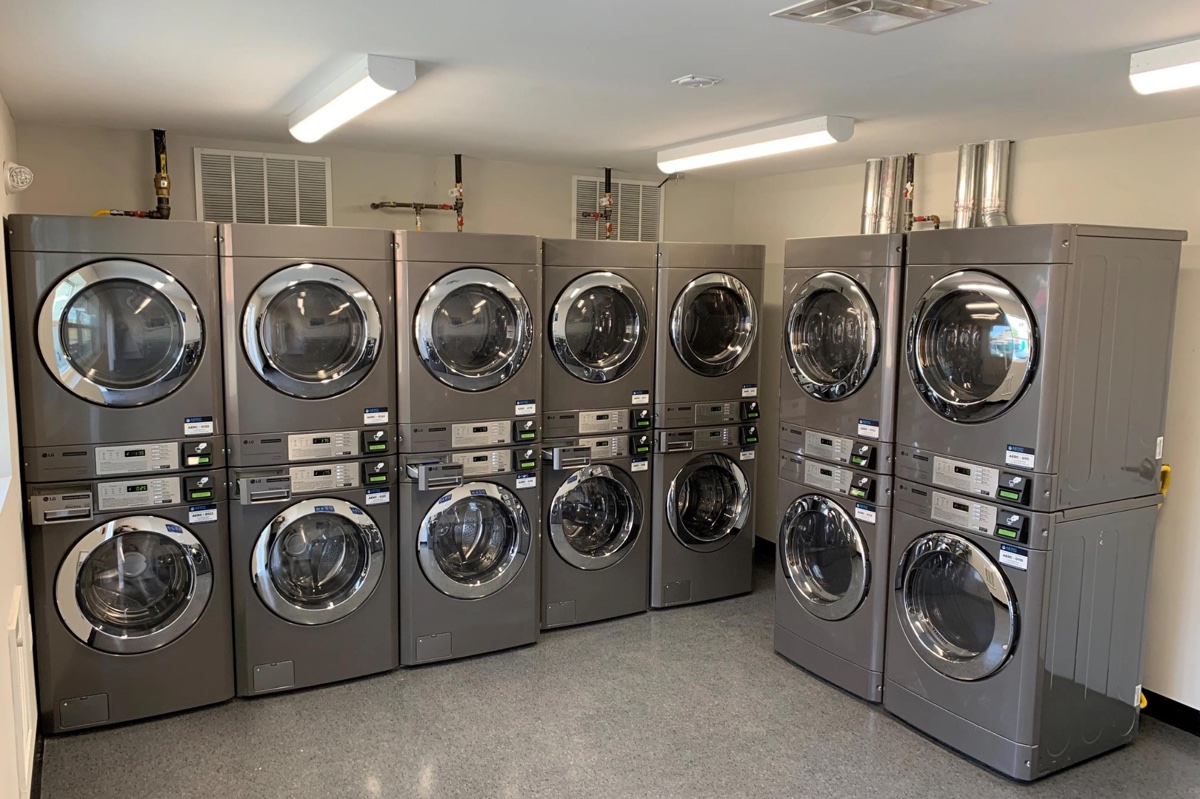
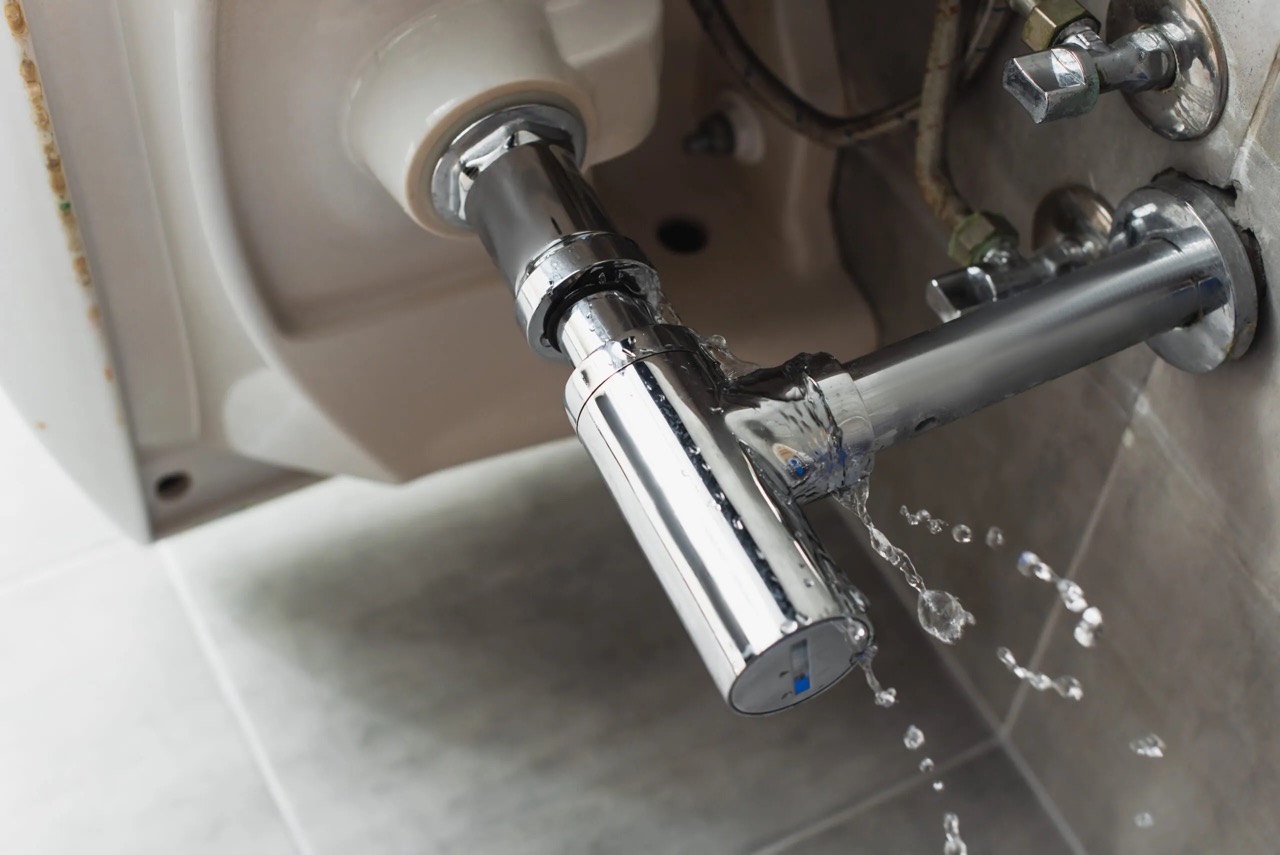
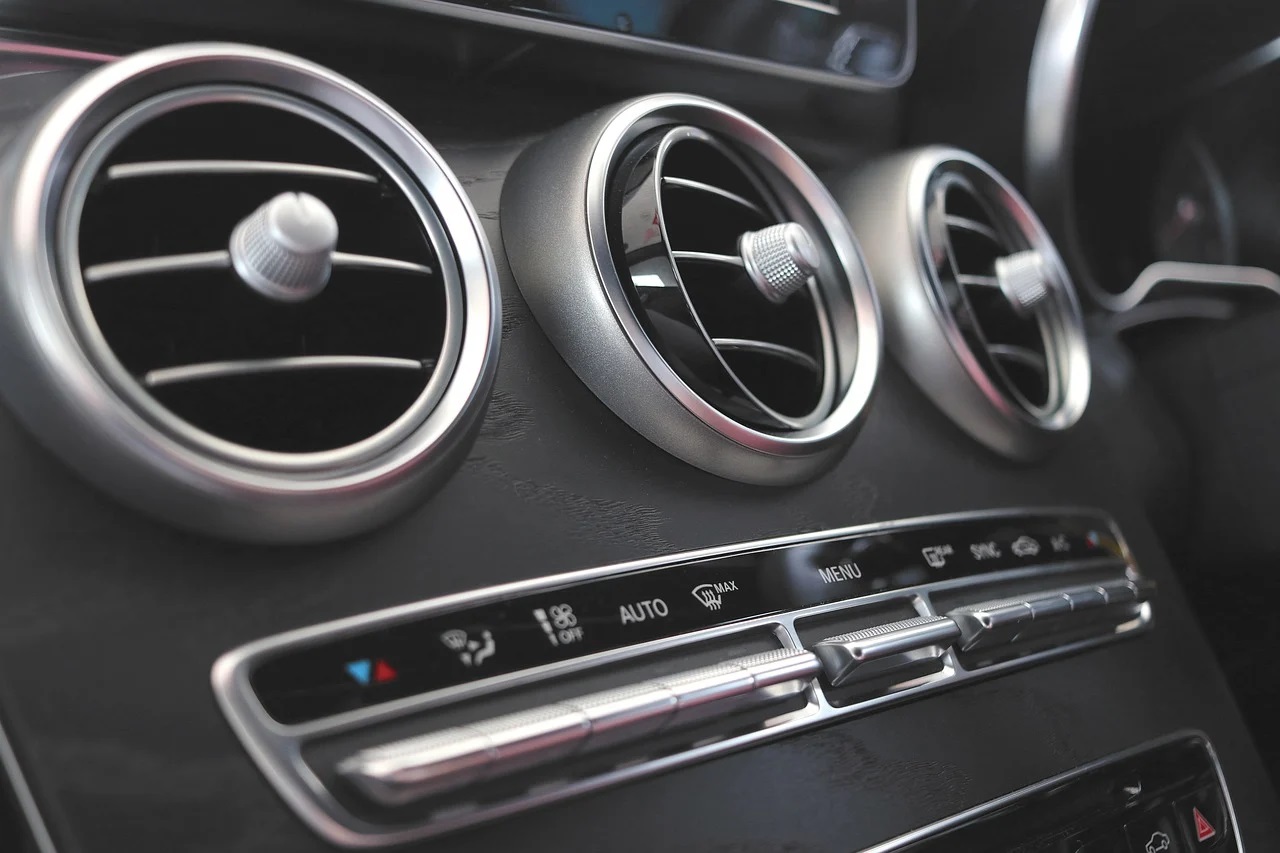
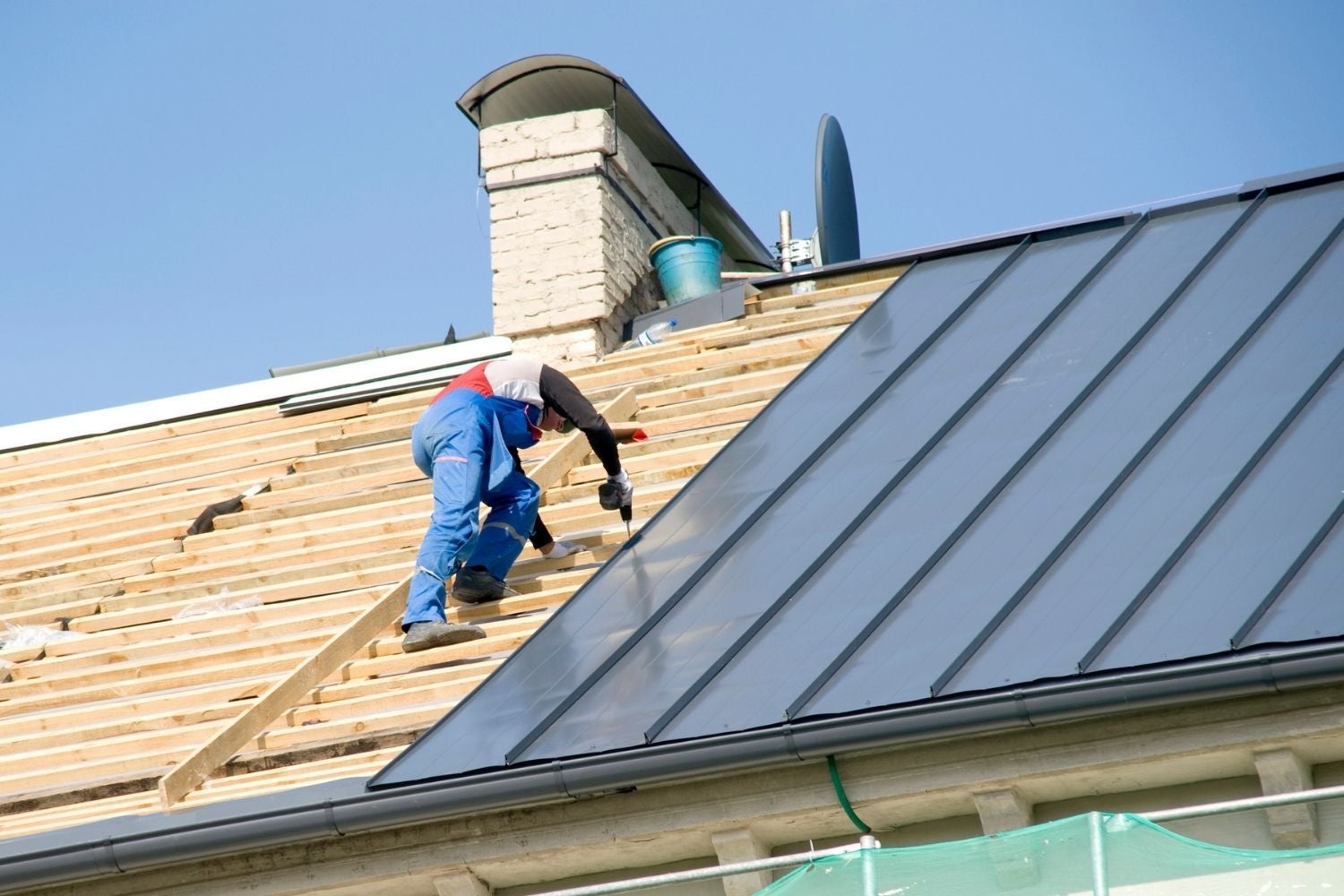
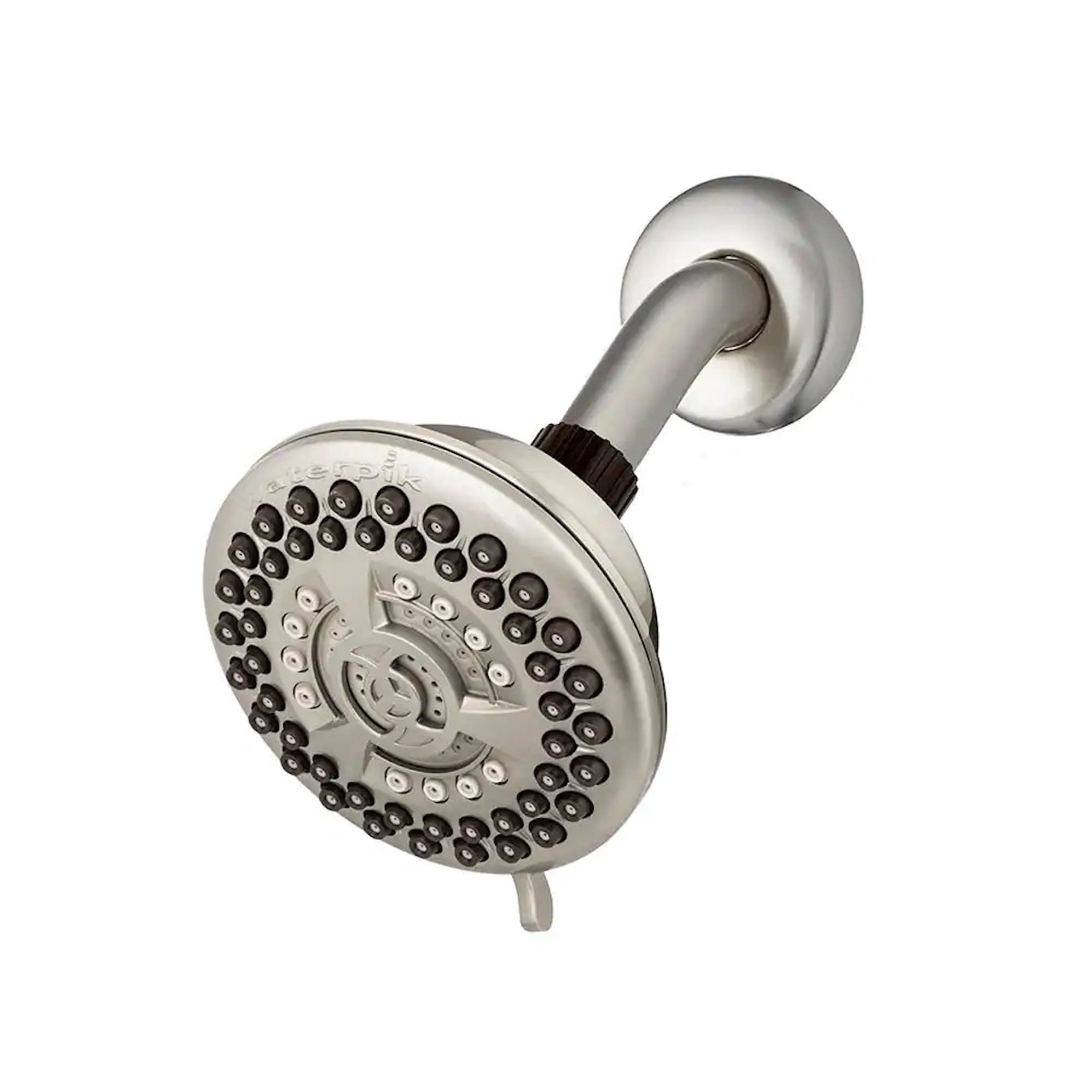
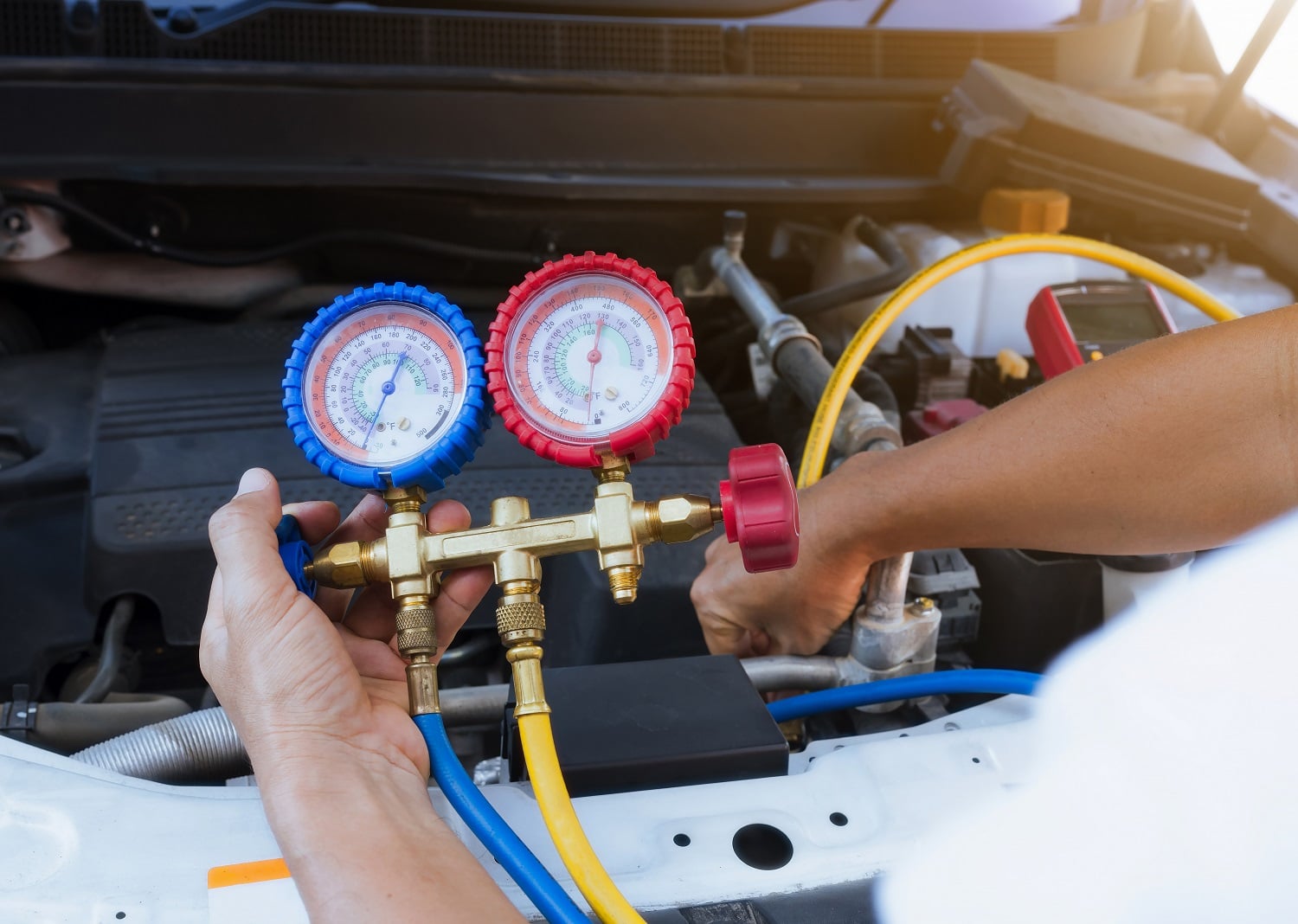


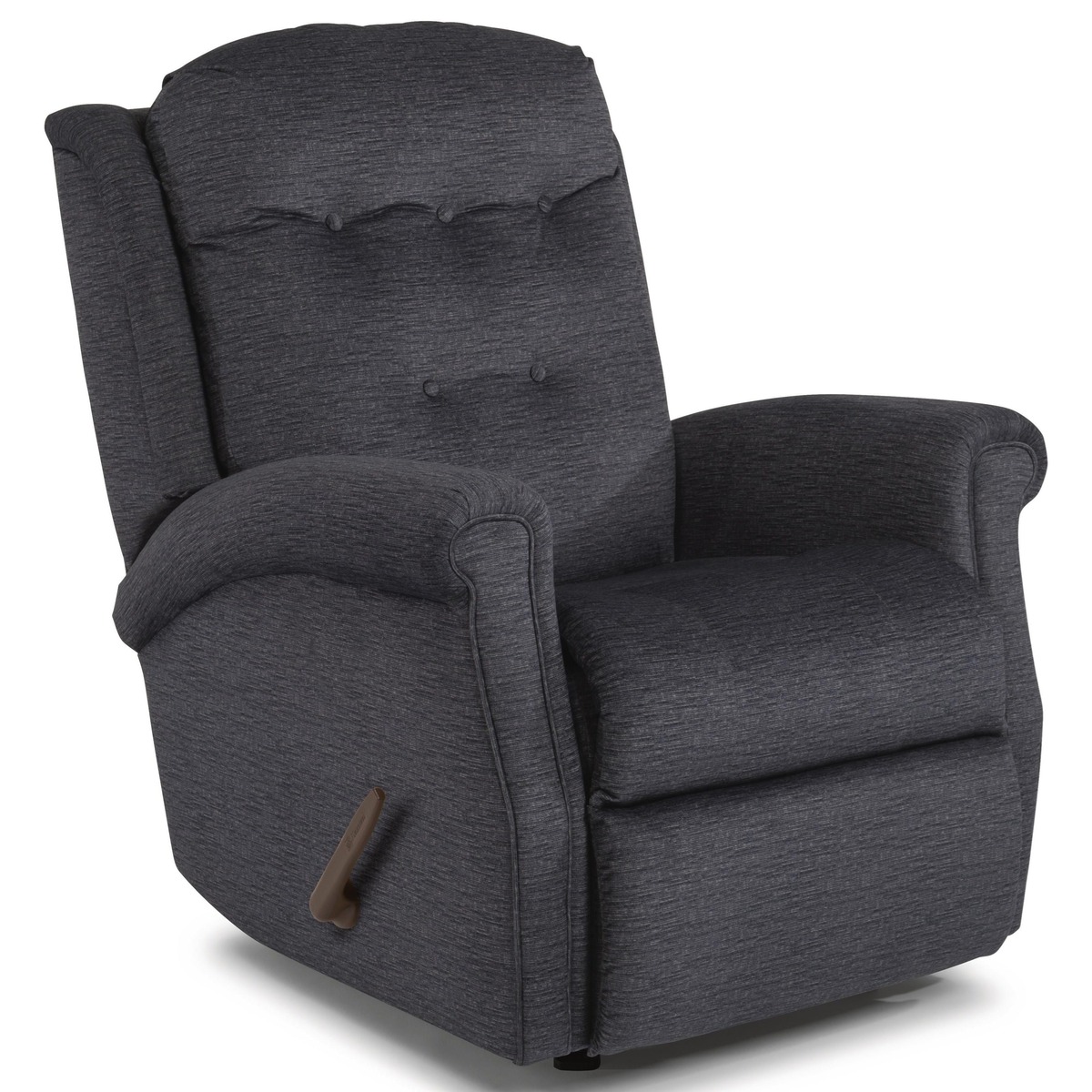



0 thoughts on “How Much Does It Cost To Fix A Washer”